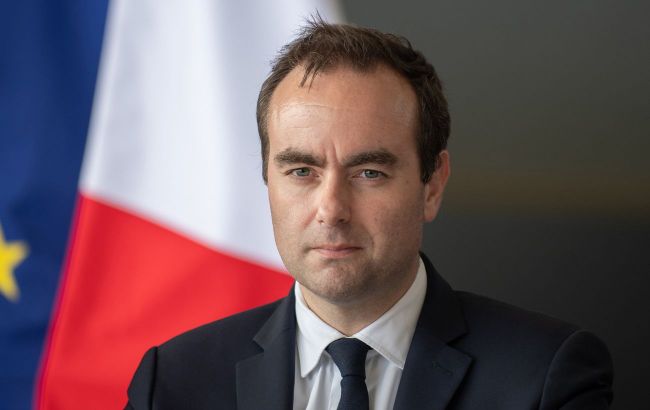France announces new government under Lecornu
 French Prime Minister Sébastien Lecornu (Photo: Getty Images)
French Prime Minister Sébastien Lecornu (Photo: Getty Images)
The Élysée Palace announced the new composition of the French government. However, clashes between far-left and far-right parties could lead to their swift resignation, according to Reuters and the BBC.
Reappointed as France’s Prime Minister, Sébastien Lecornu kept Jean-Noël Barrot as Foreign Minister and Gérald Darmanin as Justice Minister.
The most notable change was the appointment of Laurent Nuñez as Interior Minister - the Paris Police Prefect - replacing Bruno Retailleau, the leader of the conservative Republican Party, who has his own presidential ambitions.
Former Prime Minister Élisabeth Borne lost her position as Minister of Education, and she was replaced by civil servant Edouard Geffray.
Center-right veteran Catherine Vautrin replaced Lecornu as Minister of Defense. She previously served as Minister of Labor under former Prime Minister François Bayrou and held ministerial positions under former President Jacques Chirac.
Several key ministers remained in their posts, including Foreign Minister Jean-Noël Barrot and Finance Minister Roland Lescure.
Risk of short-lived tenure
At the same time, according to the BBC, there is no guarantee that Lecornu’s second government will be long-lasting. Far-left and far-right parties intend to immediately propose a vote of no confidence against the Cabinet.
Moderate left-wing parties are demanding that the Prime Minister halt the reform to raise the retirement age to 64, while center-right forces, on the contrary, insist that it should not be delayed.
If these mutually exclusive demands are not met, both political camps threaten to support a no-confidence vote. If a majority is reached, the new government would be forced to resign.
Additionally, the far-right National Rally party is reportedly ready to submit a no-confidence resolution against the new government as early as Monday, October 13. This was announced by the party’s parliamentary leader, Marine Le Pen.
Political crisis in France
On September 8, France’s National Assembly passed a vote of no confidence against the government of François Bayrou. The motion was supported by 194 of 364 deputies, including all political forces opposed to President Emmanuel Macron.
On September 9, Macron appointed Sébastien Lecornu as the country’s new Prime Minister. In the outgoing government, Lecornu had served as Minister of Defense. The President tasked him with consulting political parties and presenting a new Cabinet.
On October 6, Lecornu submitted his resignation as Prime Minister, which was accepted by the President.
Lecornu’s first government collapsed because Interior Minister Bruno Retailleau opposed the appointment of Bruno Le Maire as Defense Minister. These figures will not be part of the new government.
However, on October 10, Macron decided to reappoint Lecornu as head of the government, and he accepted.
The Prime Minister stated his intention to first submit the 2026 state budget to Parliament to avoid triggering a series of problems.
Socialists want Lecornu to cancel Macron’s pension reform and introduce a wealth tax, but right-wing parties refuse to support these proposals.

